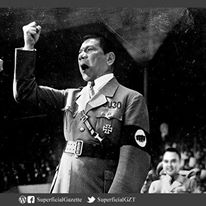OPINION-COLUMN: AS A MATTER OF FACT – Sara Soliven De Guzman- Can the ICC crack the President’s invincibility?
AS A MATTER OF FACT
– Sara Soliven De Guzman
– The Philippine Star

The order of the International Criminal Court (ICC) pre-trial chamber to proceed with the full investigation of the President for alleged Crimes against Humanity in connection with the government’s “Tokhang killings” was expected. More than any other consideration, I guess the ICC would not want to be pictured as an inutile toothless tribunal whose powers could be clipped and curtailed simply by the refusal of a state-party to cooperate in the conduct of its investigation or by the state’s withdrawal from the Convention.
If the exercise of its jurisdiction will be totally dependent on the voluntary participation of the person being investigated or his government, it could not effectively perform its mandate and should lose any reason for its existence. I think the strategy being employed by the government, including the threat to arrest the then ICC prosecutor if she comes to the country to conduct an investigation, is a challenge to the very relevance of the ICC, which the latter may not take just sitting down. It is most certain that the ICC will pursue this case and continue “annoying” the President in many ways.
The ICC was established under the Rome Statute of 2002 with the power to exercise jurisdiction over persons for the most serious crimes of international concern including war crimes, crimes against humanity, genocide and the crime of aggression. The preamble of the Statute stipulates that “these serious crimes must not go unpunished and that their effective prosecution must be ensured by taking measures at the national level and by enhancing international cooperation.”
But it also aims to put an end to impunity for the perpetrators of these crimes. Thus, this international tribunal, which is independent of the United Nations, seeks to provide justice to victims who are deprived thereof in their home state by reason of the failure of the local justice system or because the perpetrators are “untouchables’’ enjoying impunity in said territory.
But do we not have a vibrant functioning justice system that is competent in dealing with criminality in this country? Or is it for the ICC to decide whether the measures taken at the national level meet or fall short of acceptable standards? Apparently, the pre-trial chamber was not convinced that there was any serious investigation against police officers allegedly involved in extrajudicial killings. It noted that these police officers were even promised cash prizes or promoted.
Based on the evidence presented so far on behalf of the more than 200 victims, the judges found reasonable basis to proceed with the full investigation, highlighting the attendance of the “specific legal element of the crime against humanity of murder” in the implementation of the government’s war on drugs, and that “widespread and systematic attack against the civilian population took place pursuant to or in furtherance of a state policy.”
But the President does not seem to be bothered any bit. He even referred to the ICC as “bulls**t” and threatened to slap the judges of the court. Can the ICC crack the President’s seeming invincibility?
I just find the theory of the flashy Chief Presidential Legal Counsel that the Rome Statute could not be enforced in the Philippines for lack of publication in the Official Gazette interesting. I am sure the Philippines entered into hundreds of treaties and international conventions but I still have to come across a fully published treaty in a newspaper of general circulation, which is an alternative to the Official Gazette under Article 2 of the Civil Code. I googled the Official Gazette and came across Commonwealth Act 638 providing the documents that shall be published therein and there was no mention of treaties and conventions.
Then the landmark case of Tañada vs. Tuvera enumerating the laws that need publication under Article 2 of the Civil Code did not also mention treaties or international conventions. Even the incorporation clause of the Constitution, which states that the Philippines adopts the generally accepted principles of international law (usually found also in international conventions) as part of the law of the land, does not prescribe publication in the Official Gazette as a requirement for effectivity or enforceability. And I was told that internal laws of a state, like Article 2 of the Civil Code, may not be invoked as a defense before an international tribunal like the ICC.
I think that while he sits as President, he cannot be touched if he remains in the Philippines. Since the ICC will have to go through governmental processes for the enforcement of its orders here, there is no way for the secretary of foreign affairs, an alter ego of the President, or any person in government for that matter, to cause the service of a warrant of arrest or even a mere subpoena upon the highest official of the land. Voluntary surrender is certainly not an option as the President does not recognize the jurisdiction of the ICC or the application of the Rome Statute in this country.
With the President’s defiant bravado, I guess he should move heaven and earth so that the next president should be kin or a sympathetic minion willing to continue ignoring the ICC processes. There is no similar assurance if a candidate from the opposition, or one who sympathizes with the honorable senator holding office at Camp Crame, wins the 2022 presidential elections. The next president could always assert that under the Rome Statute, the withdrawal of a state party from the Convention shall not affect its obligation to cooperate with the Court “in connection with criminal investigations and proceedings in relation to which the withdrawing State had a duty to cooperate and which were commenced prior to the date on which the withdrawal became effective.”
Was not the investigation commenced prior to the effectivity of our withdrawal from the convention? There is, however, a piece of good news for the President in this eventuality. China, a known ally of the President, is not a signatory to the Rome Statute and will not therefore be obliged to cooperate with the ICC in the surrender of any person within its territory facing charges before the Court. Is it “weather-weather lang?” Will there be a need to seek refuge in an island in the West Philippine Sea China claims to be part of its territory? Abangan!
.
.












